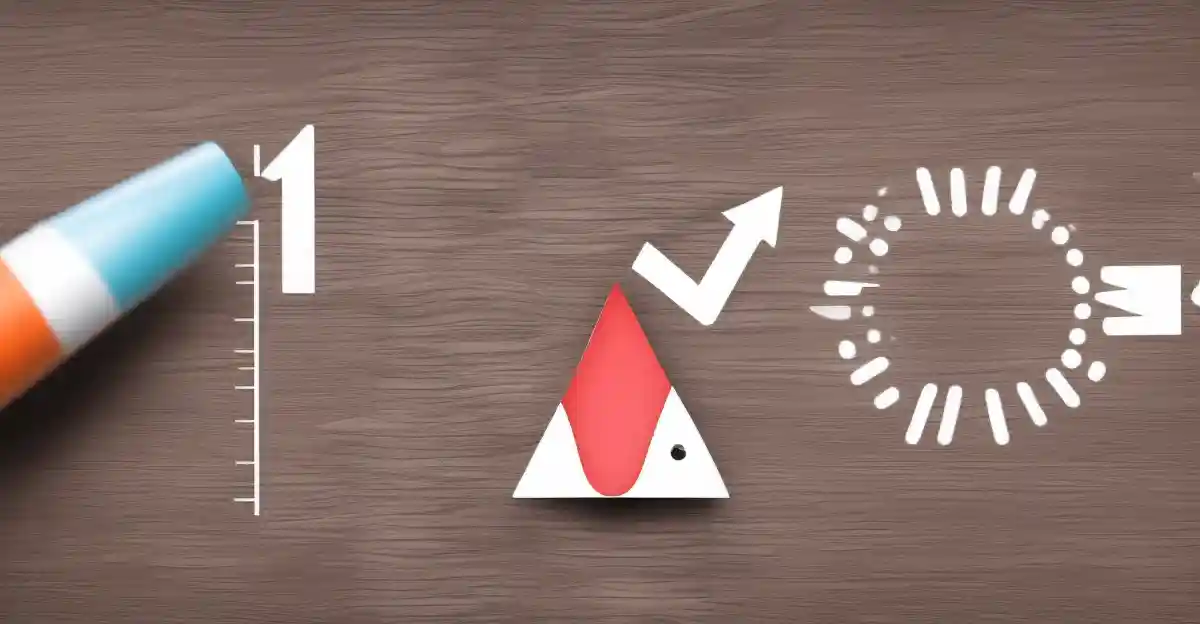You Might Want To Check This Out Too:
How to Analyze Social Media Data to Improve Your Campaign Performance
How to Extract Valuable Insights from Social Media Data
If you’re involved in social media marketing, then you know how important it is to understand the behavior of your target audience. Social media platforms provide an abundance of data that can help you achieve your goals, but it can be challenging to extract insights that are valuable to your brand.
This May Also Grab Your Attention:
Fear not, though, as in this article, we’ll be taking a deep dive into the methods that can help you glean important insights from social media data.
Step 1: Determine Your Goals
Before you can make the most of social media data, you need to determine your goals. Are you looking to increase brand awareness, generate leads, or measure engagement? The insights you gather will depend on your objectives.
You Might Also Want To Explore This:
Step 2: Collect Data
The next step in the process is to collect data. There are several tools available that can help you gather data from social media platforms. These include Google Analytics, Hootsuite, and Sprout Social.
Step 3: Analyze the Data
Once you have the data, the next step is to analyze it. This can be a tedious process, but it’s crucial to identify patterns and trends that can inform your social media strategy. One helpful technique is sentiment analysis, which involves categorizing social media posts as positive, negative, or neutral.
Step 4: Identify Key Metrics
To make the most of social media data, you need to identify the key metrics that will help you measure success. These could be anything from engagement rates to follower growth. By tracking these metrics over time, you’ll be able to see how your social media strategy is performing.
Step 5: Take Action
The final step is to take action based on your insights. For example, if you notice that your audience is most active on Twitter, you may want to focus your efforts on that platform. Similarly, if you’re seeing low engagement rates on Instagram, you may want to adjust your content strategy.
In conclusion, extracting insights from social media data can be a time-consuming process, but it’s well worth the effort. By determining your goals, collecting data, analyzing it, identifying key metrics, and taking action, you’ll be able to make data-driven decisions that can help you achieve your social media objectives.
So, there you have it – a brief guide to extracting valuable insights from social media data. We hope this article has provided you with the information you need to get started with your own social media analysis. Happy analyzing!
Considering This With A Fresh Outlook
The Top Metrics to Track for Social Media Campaign Success
Social media marketing is a crucial aspect of any digital marketing strategy. With the rise of social media platforms like Facebook, Twitter, and Instagram, businesses have found new ways to engage with their customers.
However, simply having a social media presence isn’t enough. Tracking your social media metrics is essential to determine the effectiveness of your social media campaigns and optimize your strategy for better results. Here are some of the top metrics to track for social media campaign success.
Engagement Rates
Engagement rates are a critical metric to track because they show how much your audience interacts with your content. Engagement rates measure the total number of likes, comments, and shares that your content receives relative to your number of followers.
A higher engagement rate indicates that your content is resonating with your audience and is more likely to be seen by others. Tracking your engagement rates over time can help you identify what types of content work best for your audience and adjust your strategy accordingly.
Reach
Your reach refers to the number of people who have seen your content. While it can be challenging to track your total reach for every social media post, you can monitor your organic reach (views from people who found your content on their own) and your paid reach (views from people who saw your content as a result of an ad).
Tracking your reach is crucial because it helps you understand whether your content is being seen by enough people. If your reach is low, it may be time to revisit your content strategy or increase your advertising budget.
Conversion Rates
Conversion rates are one of the most important metrics to track because they measure the number of people who take a specific action after seeing your social media content. These actions can be anything from making a purchase to signing up for a newsletter.
This Could Pique Your Interest As Well:
By tracking your conversion rates, you can identify which social media campaigns are driving the most conversions and optimize your strategy accordingly. You can also use conversion rate data to develop more targeted social media ads and content that are more likely to drive conversions.
Click-Through Rates
Click-through rates (CTR) measure the number of people who click on a link in your social media post relative to the number of people who saw the post. A high CTR indicates that your content is engaging and compelling enough to get people to click through to your website.
By tracking your CTR, you can identify which types of content and messaging resonate best with your audience and adjust your social media strategy accordingly.
Brand Mentions
Brand mentions are a powerful way to track the impact of your social media campaigns. By monitoring brand mentions, you can see who is talking about your brand and what they’re saying.
Positive mentions can indicate that your social media campaigns are resonating with your audience, while negative mentions may require you to adjust your strategy or address customer concerns.
Follower Growth
While follower growth is not necessarily an indicator of social media campaign success, it is a critical metric to track. Follower growth measures the number of new followers you gain over a specific period.
By tracking your follower growth, you can identify which social media campaigns are driving the most interest in your brand and adjust your strategy accordingly.
In conclusion, tracking your social media metrics is crucial to determining the effectiveness of your social media campaigns and optimizing your strategy for better results. By monitoring your engagement rates, reach, conversion rates, click-through rates, brand mentions, and follower growth, you can identify what types of content work best for your audience and adjust your strategy accordingly. So, keep these top metrics in mind when evaluating your social media campaigns, and watch your success soar!
Analyzing This From A New Perspective
The Essential Guide to Understanding Social Media Analytics
Social media has become an integral part of our daily lives, allowing us to connect with friends, family, and businesses from all over the world. As social media continues to gain traction, it’s becoming increasingly essential for businesses to leverage these platforms to attract and retain customers. One way to achieve this is through social media analytics.
Social media analytics is an excellent tool for any business owner looking to make data-driven decisions. It involves analyzing metrics and key performance indicators (KPIs) to gain insights into how your social media platforms are performing.
In this article, we’ll explore the ins and outs of social media analytics and why it’s crucial for businesses to understand this tool.
What is Social Media Analytics?
Social media analytics is the practice of gathering data from social platforms, analyzing it, and using the results to gain insight into the performance of your social content. Analyzing social media metrics can help you gain valuable insight into your target audience, their behaviors, and their preferences. Social media analytics typically includes KPIs like:
- Reach: The number of people who have seen a particular post or ad.
- Engagement: The number of likes, comments, and shares on a post or ad.
- Conversion: The number of users that completed a desired action on your website.
Why is Social Media Analytics Important?
Social media analytics is essential because it helps businesses understand how their social media platforms are performing, allowing them to create more targeted and effective marketing strategies. By analyzing social media data, businesses can learn what type of content resonates with their audience and adjust their social media marketing accordingly.
For example, suppose your business is targeting younger consumers. In that case, you can use social media analytics to identify the platforms that your target audience spend the most time on and the type of content that resonates with them.
Social media analytics can also help businesses understand their competitors better. By analyzing metrics like engagement rates and audience demographics, businesses can gain insight into their competitors’ strategies and adjust their own strategies accordingly.
How to Use Social Media Analytics
To use social media analytics, you first need to identify your goals. What is it that you want to achieve with your social media marketing? Is it to increase brand awareness, generate more leads, or drive more traffic to your website?
Once you’ve identified your objectives, you need to determine which metrics will help you track your progress toward those goals. For example, if your goal is to drive more traffic to your website, you might want to track click-through rates or website referrals from social media platforms.
It’s crucial to note that not all metrics are created equal. Some metrics, like reach and engagement, can be useful for measuring brand awareness, while others, like website referrals, can be valuable for tracking conversions.
The Benefits of Social Media Analytics
Social media analytics can help businesses in various ways, including:
- Understanding your target audience: Social media analytics can provide valuable insights into your target audience, including demographics, interests, and behaviors, allowing you to create more targeted marketing campaigns that resonate with your target audience.
- Improving your social media strategy: By analyzing metrics like reach and engagement, businesses can adjust and optimize their social media strategies to build their brand, engage with their audience, and generate more leads.
- Identifying opportunities: Social media analytics can help identify untapped opportunities, such as emerging trends or new target audiences that you can target.
- Competitive benchmarking: By analyzing metrics like engagement rates and audience demographics, businesses can gain insight into their competitors’ strategies and adjust their own strategies accordingly.
Conclusion
In conclusion, social media analytics is a powerful tool that businesses can use to make data-driven decisions. By analyzing social media metrics, businesses can gain valuable insight into their target audience, their preferences, and behaviors. This information is critical when developing effective social media marketing campaigns aimed at building brand awareness, engaging with customers and generating leads. If you want to stay ahead of the competition, then investing in social media analytics is a must!
Seeing This From A Different Point Of View
10 Tools for Analyzing Social Media Data and Improving Campaign Performance
As a social media marketer, it’s crucial to stay on top of your game by constantly analyzing the data you gather from your campaigns. By doing so, you’ll gain valuable insights that will enable you to improve your strategy for better outcomes. Here are ten tools that can help you stay ahead of the curve.
1. Google Analytics
Google Analytics is an all-around tool that provides you with detailed insights into your website traffic, including your social media traffic. With Google Analytics, you can track which social media channels are driving traffic to your site, how much time users are spending on your site, and which pages or posts are most popular.
2. Hootsuite Insights
Hootsuite Insights is a powerful tool that can help you monitor your brand’s social media presence. With this tool, you can track your brand’s social media activity, monitor your competitors, and gain insights into your audience. You can also use Hootsuite Insights to track mentions of your brand in real-time, so you can respond quickly to any negative feedback.
3. Buffer
Buffer is a great tool for managing your social media accounts in one place. With Buffer, you can schedule posts, track analytics, and collaborate with team members. You can also use Buffer to create custom reports that provide insight into your social media performance.
4. Talkwalker
Talkwalker is a powerful social media monitoring tool that can help you track your brand’s reputation online. With Talkwalker, you can track brand mentions, monitor social media sentiment, and analyze your social media performance. This tool also provides real-time analytics, so you can quickly respond to any issues that arise.
5. Sprout Social
Sprout Social is an all-in-one social media management platform that provides you with everything you need to manage your social media accounts effectively. With Sprout Social, you can schedule posts, analyze your performance, and track your audience engagement. This tool also provides insights into your audience demographics, so you can tailor your content accordingly.
6. Agora Pulse
Agora Pulse is a social media management tool that provides you with a range of features, including scheduling, analytics, and monitoring. With Agora Pulse, you can also collaborate with team members and create custom reports. This tool is ideal for small to medium-sized businesses that want to manage their social media presence efficiently.
7. Keyhole
Keyhole is a social media monitoring tool that can help you track your brand’s social media performance in real-time. With Keyhole, you can monitor conversations around your brand, track your hashtags, and analyze your social media metrics. This tool is perfect for brands that want to improve their social media engagement and stay ahead of their competitors.
8. Tailwind
Tailwind is a social media scheduler and analytics tool that’s specifically designed for Pinterest and Instagram. With Tailwind, you can schedule posts, track your performance, and find relevant content to share with your audience. This tool also provides insights into your audience demographics, so you can tailor your content to their interests.
9. Followerwonk
Followerwonk is a social media analytics tool that’s designed specifically for Twitter. With Followerwonk, you can analyze your Twitter followers, track your competition, and identify new influencers to follow. This tool also provides insights into your audience demographics, so you can tailor your content to their interests.
10. Social Mention
Social Mention is a free social media monitoring tool that can help you track your brand’s social media performance. With Social Mention, you can monitor brand mentions, track keywords, and analyze social media sentiment. This tool also provides insights into your brand’s reach and authority on social media.
In conclusion, there’s no shortage of tools available to help you analyze your social media performance and improve your campaigns. By leveraging the insights provided by these tools, you can make informed decisions about your social media strategy and stay ahead of your competitors. So, take advantage of the tools listed above and start improving your social media performance today!
You May Also Be Interested In:
Author Profile

- 🌟 Hello, I'm Val, your social media virtuoso. With a passion for crafting compelling content and a keen eye for visual aesthetics, I'm here to help you captivate your audience and elevate your brand's online presence. Let's embark on an exciting journey together and make your social media shine brighter than ever! 🚀
Latest entries
 Maximizing Audience Engagement On TwitterFebruary 27, 2024Where To Look For Influencers The Pros And Cons Of Different Platforms
Maximizing Audience Engagement On TwitterFebruary 27, 2024Where To Look For Influencers The Pros And Cons Of Different Platforms Maximizing Audience Engagement On TwitterFebruary 25, 2024How To Vet Potential Influencers Before Working With Them
Maximizing Audience Engagement On TwitterFebruary 25, 2024How To Vet Potential Influencers Before Working With Them Maximizing Audience Engagement On TwitterFebruary 24, 2024How To Boost Your Twitter Profiles Visibility
Maximizing Audience Engagement On TwitterFebruary 24, 2024How To Boost Your Twitter Profiles Visibility Maximizing Audience Engagement On TwitterFebruary 23, 20245 Ways To Find The Perfect Microinfluencer For Your Brand
Maximizing Audience Engagement On TwitterFebruary 23, 20245 Ways To Find The Perfect Microinfluencer For Your Brand



